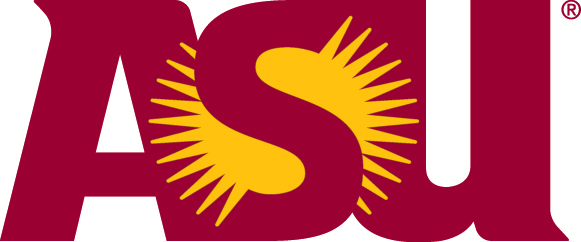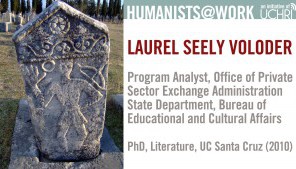ASU’s plan for the Mellon/MLA Connected Academics project offers an ambitious set of innovations to traditional graduate training in languages and literature. It augments curricula, expands para-curricular programming (including internship opportunities), and sharpens the process of mentoring,. The overall goal is to accelerate and enrich the experience of earning a doctoral degree in languages and literatures. It is not meant to impose impossible deadlines nor to skimp on depth and quality of training, but rather to reimagine the range of possible skills that can be meaningfully incorporated into humanities graduate training and then to facilitate a broader array of outcomes suggested by that training.
Our goal with mentoring is to focus the process across the timeline of the graduate experience. Under Mellon/MLA protocols, admissions committees will make decisions on applicants based upon the availability and interest of advisors. In turn, advisors will commit to a formalized relationship prior to official notification of acceptance to the student.
- From date of acceptance through date of enrollment (approximately a four-month period of time) there will be structured correspondence between the incoming student and their advisor, based on templates that ASU will develop. Topics addressed will be:
- Background preparation (and possible remediation for gaps in the student’s knowledge base.
- Course selection for the first year.
- A written “doctoral advisement plan” will be developed based on the NSF guidelines for postdoctoral fellows in the sciences.
Both advisee and advisor will sign the resulting agreements. It will be the responsibility of the advisor to help the student through this process. There may be faculty members in our doctoral programs unwilling to participate in this process. Those faculty members will not be invited to serve as doctoral advisors.
Recognize faculty mentoring champions
Faculty “Champions” will provide mentoring for students in each of the doctoral programs. Most doctoral programs already have these champions, who serve without compensation and largely without thanks. These are the “go to” faculty for graduate students who need advice about research, careers, or the structure of academic life. Our Champions program will both recognize and compensate a small number of such mentors in each doctoral program.
Additional components to the proposed activities:
Mandate that doctoral students create five-year graduation plans
At ASU we use what is called an iPos, or “interactive program of study,” which is intended to guide students who are halfway through their coursework to the
completion of their degree. We will accelerate the completion of the iPos, as soon as the student begins their program.
Give doctoral students entrepreneurial mentoring
As part of the mentoring process, we will invite students to take advantage of the Edson Initiative at ASU. The Edson Student Entrepreneur Initiative provides funding, mentorship, and office space to teams of students within all university disciplines.
Establish a “Community of Scholars Academy” to expand student understanding of career pathways
Building on efforts already underway at ASU, we will establish a Community of Scholars Academy (COSA) for doctoral students in English and the School of International Languages and Cultures. Participation in the Academy will provide opportunities for innovative experiences for students completing their PhDs.
Establish a “Humanities Project Fund” to support innovative and applied research projects
This funding will encourage students to think “outside the box” for research projects that involve cross-training in new skills, or require cross-disciplinary collaboration.
Create an interdisciplinary digital humanities seminar series
We will leverage ASU’s IHR Nexus Lab for Digital Humanities and Transdisciplinary Informatics, using this space as a Digital Humanities (DH) point of integration and collaboration for graduate students. This will include a seminar series, drawing on the DH-related work of graduate students, postdocs, and faculty. Students can also receive credit for DH workshops completed.
Create three new graduate certificates
1. Graduate Certificate in Humanities and Social Sciences Methodologies
2. Graduate Certificate in Digital Humanities
3. Graduate Certificate in Teaching in Higher Education
Help doctoral students find internships
As students are exposed to a greater variety of experiences over the course of this program, we expect that the intended internship area will change as they progress through their doctoral program. The internship will take place during students’ final year of coursework and will make up 3-12 credit hours, depending on the nature of the internship.
Assess the size of doctoral programs
As part of the Mellon/MLA project, each doctoral program in language and literature will conduct a self-assessment of its size based on student demand, diversity, ASU’s undergraduate teaching mission, time to degree, available funding, and placement.
Appoint a Mellon / MLA graduate research fellow
ASU will support hiring a .50 FTE Mellon/MLA Graduate Research Fellow in the humanities to help oversee the project. This GRF will be an outstanding current PhD student in the modern languages and literatures who is also a recent (within the past two years) graduate of the Preparing Future Faculty program.







